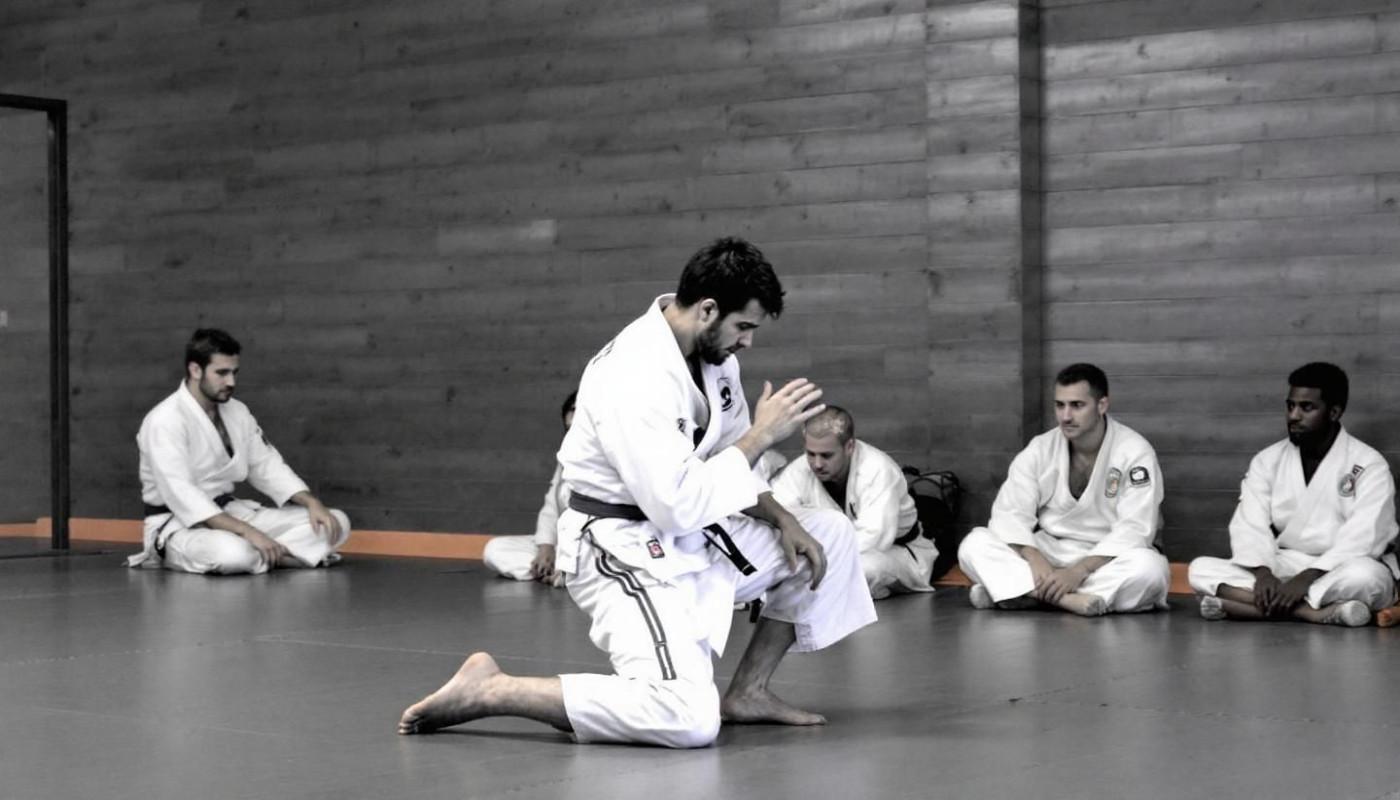Table of contents
Stepping into the world of judo as a newcomer is both an exciting and transformative journey. The judo community, rich in tradition and camaraderie, offers unique opportunities and challenges for those just beginning their path. Discover what it means to be embraced by this dynamic environment, and explore the foundational experiences that shape every judoka’s early days. Dive into the upcoming paragraphs to uncover insights that will guide and inspire your entry into the judo community.
Understanding dojo etiquette
Dojo etiquette forms the foundation of a respectful and harmonious judo environment, especially for those new to the community. Newcomers are expected to observe dojo etiquette by demonstrating respect in judo toward both senior members and peers. One of the first judo customs encountered is "rei," the bow that signifies respect and humility at the start and end of practice sessions, when stepping on or off the mat, and when greeting instructors or training partners. Cleanliness holds significant meaning: participants must ensure that uniforms (judogi) and personal hygiene are maintained, as this demonstrates consideration for others and supports the collective health of the group. Punctuality is another core beginner judo rule, reflecting reliability and discipline. Rituals such as lining up in rank order, observing silence during instruction, and always seeking permission before leaving the mat reinforce these values and contribute to a positive, focused atmosphere. Adhering to these judo rituals not only preserves tradition but also helps newcomers integrate smoothly, fostering mutual respect and a sense of belonging within the dojo community.
Navigating the learning curve
Entering the world of judo introduces newcomers to a fast-paced environment filled with intricate judo techniques and unique judo terminology. For many, learning judo begins with mastering ukemi, or breakfall technique, which is vital for safety and confidence on the mat. At this stage, beginners often encounter confusion, physical fatigue, and mental hurdles as they strive to understand new movements and terminology. Adapting to the rigorous demands of judo training tips the balance between challenge and progress, especially when mistakes seem frequent. Instead of discouragement, view these setbacks as opportunities for growth. Celebrating small victories such as correctly executing a grip or remembering a Japanese term fosters steady judo progress. Seeking feedback from instructors, practicing consistently, and supporting fellow beginners creates a positive learning environment. Remember that every experienced judoka once faced similar frustrations; perseverance and patience are keys for any beginner on their path to mastery.
Building community connections
Entering the judo community offers newcomers a rare opportunity to forge deep martial arts friendships and create genuine bonds that extend well beyond the dojo walls. Relationships with peers and mentors are cultivated through shared experiences, respect, and the tradition of senior members guiding kohai. Support within the dojo is tangible, as team spirit judo thrives on encouragement and learning together. Regular practice sessions foster a sense of belonging, where each member’s progress is celebrated and challenges are faced as a united group. Building connections judo-style means embracing a culture where advice, feedback, and friendship intertwine, giving every individual a support network that extends both socially and emotionally. This environment helps newcomers feel valued, find motivation, and build self-confidence as they become an integral part of the judo community, supported by both mentors and fellow practitioners.
Embracing the values of judo
Entering the world of judo means encountering a tradition deeply rooted in core principles such as respect, humility, perseverance, and self-discipline. These judo values form the foundation of martial arts discipline and extend far beyond physical techniques, shaping character and guiding behavior both on and off the tatami. Respect in martial arts is demonstrated through gestures like bowing, listening attentively to instructors, and supporting peers, cultivating an environment where every participant feels valued. Humility reminds newcomers that progress is a continuous journey, encouraging reflection and openness to learning with every practice. Perseverance and self-discipline help practitioners overcome challenges, whether facing a tough opponent or personal setbacks, teaching that consistent effort leads to growth. By internalizing the philosophy of judo, especially the principle of jita-kyoei, individuals learn that true success is achieved when contributing to the well-being of others. These benefits of judo transcend the dojo, influencing daily interactions, personal goals, and community involvement. For instance, joining the global judo community is now easier than ever with resources available through the internet, as highlighted by recent stories like internet, which showcase how new members are welcomed and guided by these core values.
Setting goals and tracking progress
Establishing clear judo goals is a fundamental part of the beginner journey, providing a sense of direction and accomplishment from the very first class. For those new to the judo community, initial milestones might include learning fundamental breakfalls, executing basic throws with correct technique, and understanding dojo etiquette. Progress in beginner judo is often measured through the kyu ranking system, where students advance from white to colored belts before reaching black belt status. This structured judo grading offers tangible evidence of martial arts achievement, as each new belt represents mastery over specific techniques and theoretical knowledge. Students are encouraged to set incremental targets, such as perfecting a particular throw or kata, and to keep a training journal or portfolio to track their growth. Observing measurable beginner judo progress not only reinforces motivation but also fosters discipline and persistence. The visible progression through judo belts, combined with positive feedback from instructors and peers, creates a rewarding cycle that inspires continued dedication to the art.
On the same subject

Bridging Passion And Business: The Benefits Of Sports In Entrepreneurship

How Elevator Shoes Can Increase Your Height Discretely

